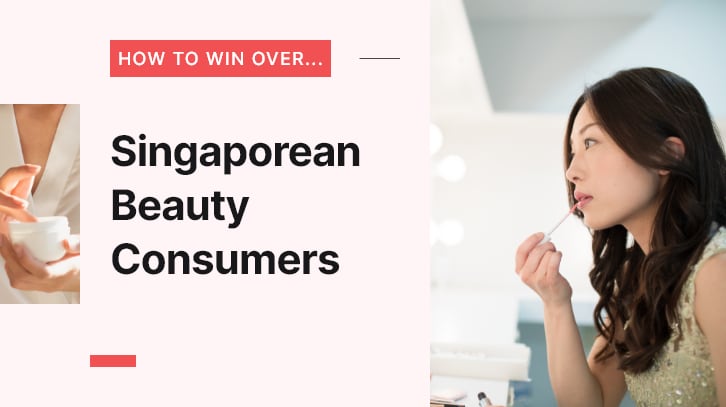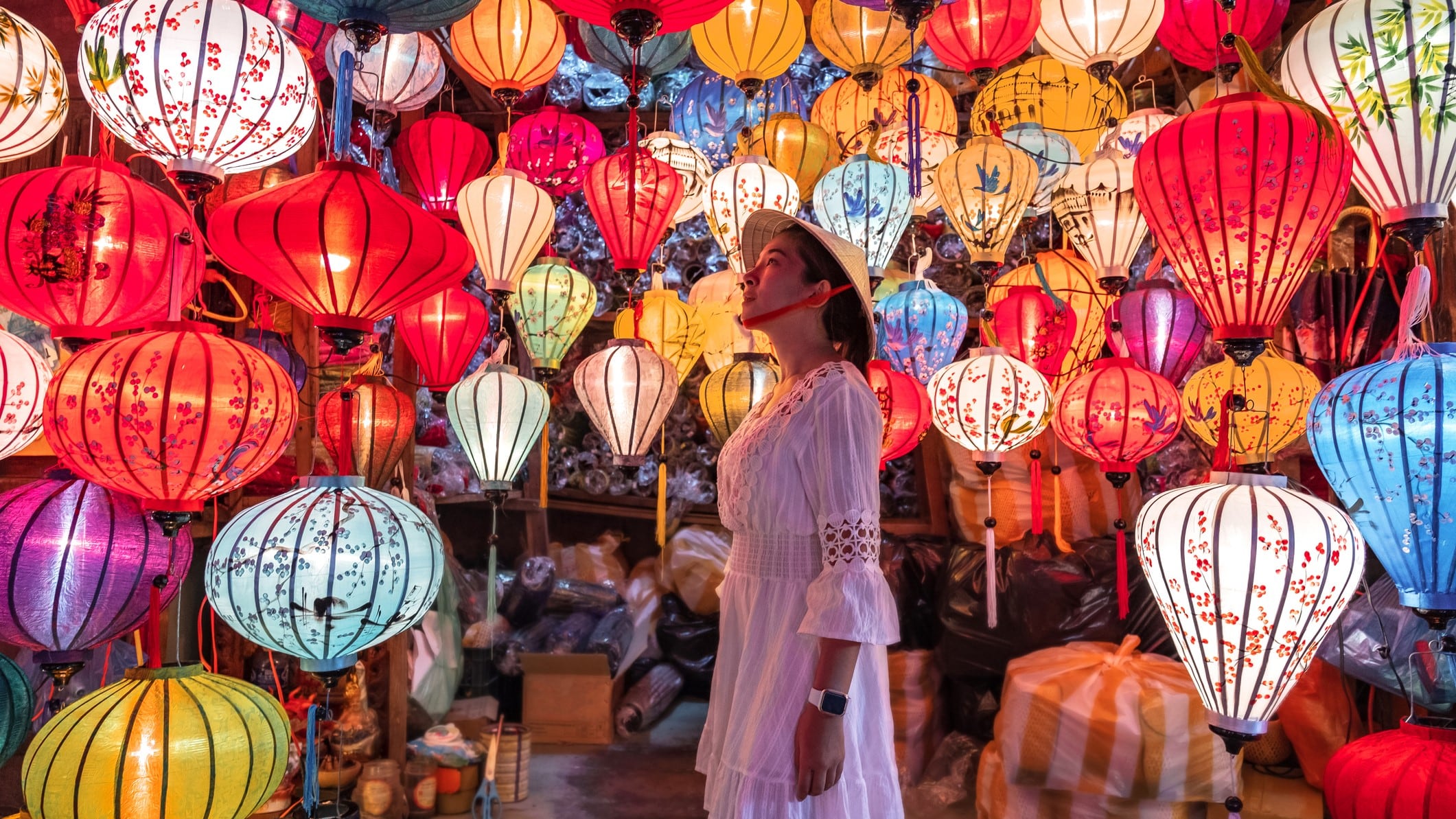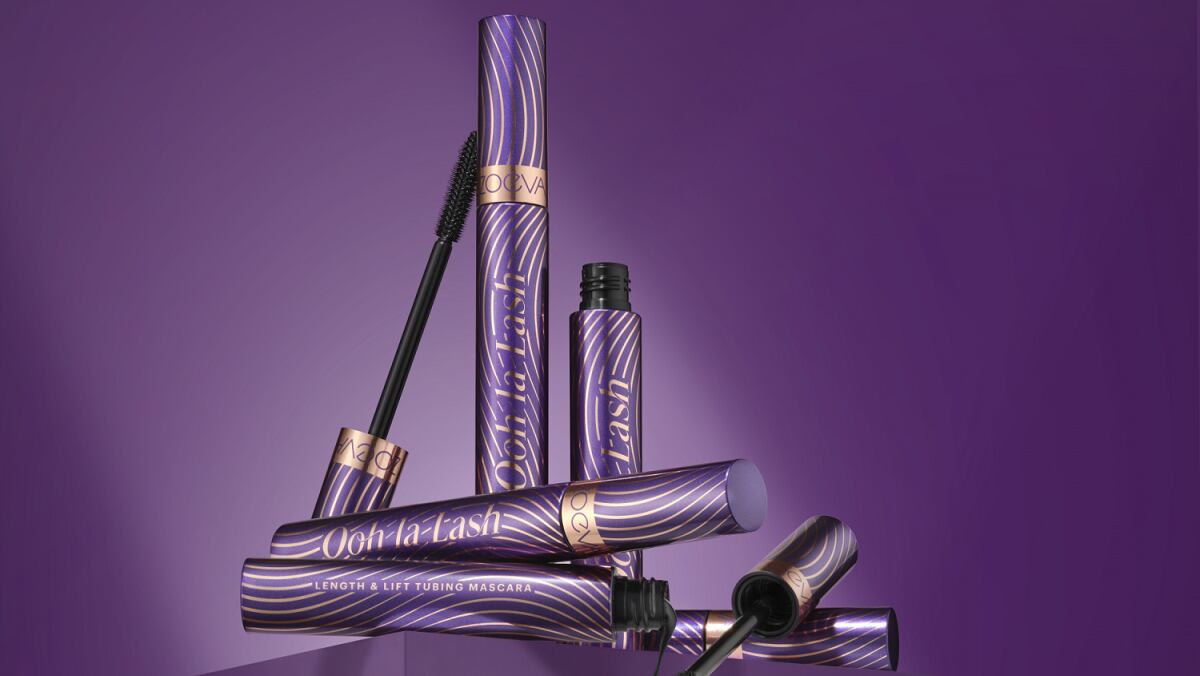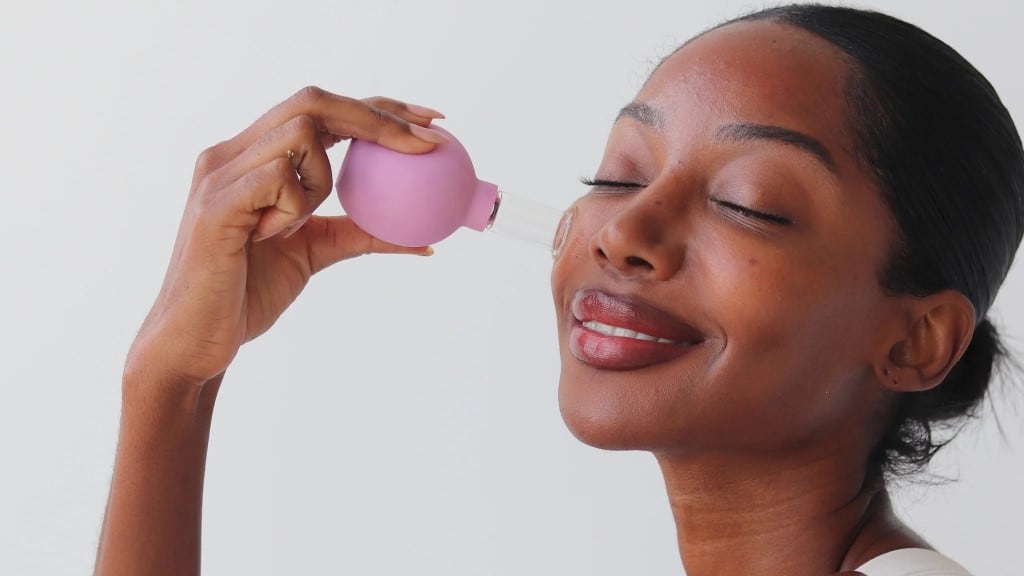Singapore is so small it is often unseen on world maps but for a red marker highlighting its place. This is how the island nation got its nickname, the Little Red Dot. The city-state is about 712 square kilometres and smaller than Rhode Island, the smallest state in the US. The population is over five million and larger than New Zealand’s, a country you could easily spot on a map without any other indicators.
While it is a David in a world of Goliaths, Singapore remains one of the most attractive markets for businesses across multiple industries. It is highly regarded as a business-friendly environment and logistics hub, making it the ideal entry point into SEA or the wider Asia region.

Singapore Retail Association (SRA) council member Alwyn Chong told CosmeticsDesign-Asia described Singapore as a “showcase market” for the beauty industry.
“Singapore’s multicultural environment and mature shoppers make it a diverse playground for beauty brands at all price points to enter. It is a hot bed for Asian beauty consumers as they adopt both North Asian, North American, as well as European brands and beauty trends easily,” said Chong, the regional managing director, SEA and Emerging Markets of LUXASIA.
He highlighted that Singapore’s vibrant beauty retail scene, which includes multi-brand retailers, chain stores, standalone boutiques, and department stores, also helps to attract brands into the market.
“Singapore serves as a first stop for brands to establish itself in the region as it provides credibility to have a brand open its first location in Singapore,” said Chong.
According to Sephora, its Singapore flagship located in ION Orchard shopping mall is one of its most successful stores globally. In 2019, Sephora ION was its third-highest performing store among its thousands worldwide.
“Sephora ION has become one of the top-performing Sephora stores globally, a testament to its success with Singapore's diverse and trend-savvy consumer base,” said Lutz Ackermann, general manager, Sephora Singapore.
The strength of Singapore’s beauty and personal care market can also be demonstrated by its resilience during the COVID-19 pandemic.
According to Euromonitor International, it decreased by 5.6% in 2020 to SGD1.675bn compared to 2019. However, the subsequent three years recorded steady annual growth. From 2021 to 2023, its annual growth was 4.1%, 5.9%, and 6.2% respectively.
Singapore’s robust beauty market can be attributed to its people. It has a diverse and cosmopolitan demographic with a mix of locals and expatriates from various nations. The island is also teeming with tourists all year round that want to experience its various cultures and see its many iconic landmarks.
“Singapore's beauty scene is extremely vibrant and dynamic given the cosmopolitan melting pot nature of this city-state. Sephora’s beauty community tend to be digitally savvy trendsetters and explorers who are willing and eager to explore and experiment with the latest trends, looks, brands and products from all over the globe,” said Ackermann.
These characteristics also make Singapore an ideal testing ground for beauty brands, Chong said.
“In combination with the high tourist traffic, the Singapore beauty consumer is also keen to try anything that is on trend, agnostic to any country or culture. They are adventurous, love trying new brands and products and embrace new to market brands easily.”
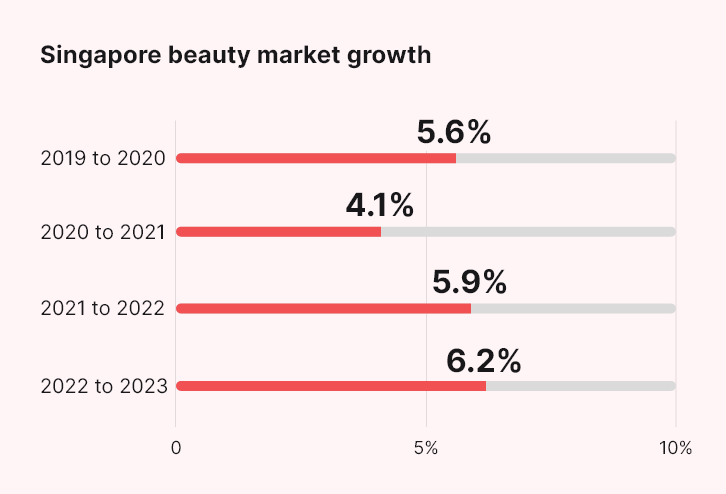
A skin-influenced market
Like many markets in Asia, skin care has historically led Singapore’s beauty market. According to Euromonitor, the category was valued at SGD804.8m. In comparison, makeup was valued at SGD233.9m.
Ackermann highlighted that Singaporean consumers’ skin care goals are to achieve radiant and healthy skin. Coupled with the influence of K-beauty in Singapore, consumers seek out hydration claims in products to achieve that glass-skin effect. The aggressively sunny country is also conscious of ultraviolet damage, making sun care products vital in the beauty routine.
“The integration of sun care into daily beauty routines goes beyond protection, but also is a key step to achieving radiant, healthy skin,” said Ackermann.
The skin care category is also being influenced by the rise in non-invasive medical aesthetic treatments, which is driving the growth of the beauty device category.
“The usage of devices is definitely on the uptick to complement the usage of skin care products. We see it trying to replicate the dermatology treatments that consumers are adopting,” said Sharon Kwek, director of consulting, beauty and personal care, Mintel.
For more insights from Mintel on the Singapore beauty market, check out our video below.
The importance of skin care and the rising interest in active ingredients is driving these consumers to seek out more sophisticated beauty products. Pauline Ng, founder and managing director of homegrown cosmetics firm Porcelain, has increasingly observed more demand for makeup with skin care benefits.
“There is a rise of ‘skintegration’ where the the lines between makeup and skin care are blurring. Consumers are seeking products that deliver both aesthetic and functional benefits. Our Skin-perfecting Moisturiser with SPF 30 is the perfect example that is able to address this need from customers today, as we see a trending increase in the searches for tinted moisturisers and blushes with skin care ingredients,” said Ng, who is also a council member of SRA.
This trend has also been observed by Sephora, which has recently added a number of such products into its portfolio that tap into this trend such as Kosas Revealer Super Creamy + Brightening Concealer with Caffeine and Hyaluronic Acid, Supergoop! Protec(tint) Daily Tint SPF 50 PA ++++, Nudestix Nudescreen Blush Tint SPF 30, as well as Ultra Violette’s Sheen Screen Hydrating Lip Balm SPF 50.
“There is a rising appetite for makeup products that offer both beauty and skin care benefits, blurring the lines between the two. This convergence between skin care and makeup is central to Sephora’s success in meeting our customers' evolving beauty needs,” said Ackermann.
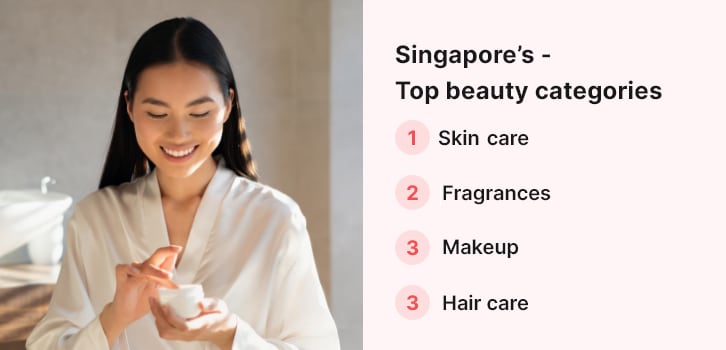
Singaporean consumers’ high awareness of skin care is also driving the growth of another category – hair. According to Euromonitor data, hair care has grown steadily over the past four years and is now valued at SGD227.3m, quickly catching up with colour cosmetics.
“In the hair care category, there is room for growth following the ‘skinification’ of hair and treating their hair as one would for their skin with a multiple step hair care routine,” said Chong.
Over the past few years, hair care has been one of the fastest growing categories for Sephora. In response, the retailer has greatly boosted its hair care portfolio, introducing exciting brands such as Amika, JVN, Fekkai, and K18 for its customers. It has also developed hair care products under its Sephora Collection lineup.
Scalp health is emerging as a chief concern among local consumers thanks to the influence of skin care on the hair care category.
“The growth in hair care is fuelled by increased awareness of scalp care as key to maintaining healthy locks. Consumers conscious of their scalp's health have contributed to a surge in demand for specialised hair care products. This growth can also be attributed to our diverse assortment of hair products that cater to a wide variety of hair types and concerns,” said Ackermann.
This driving interest in brands like Ouai, which Ackermann said was a current “customer favourite” for its functional hair care solutions.
Fragrance and luxury beauty
As a multicultural nation, Singapore is exposed to a variety of aromas. Singaporeans can relate to the smell of pandan leaves, curry powder, jasmine flowers, freshly brewed kopi, and of course, durian. As the fragrance category gained momentum over the past few years, they have proven to be open to complex scents and embraced niched brands.
The market is increasingly concentrated with niche fragrance labels such as Byredo, Diptyque, Maison Francis Kurkdjian, and Memo Paris. Singapore’s LUXASIA can be credited for nurturing the niche space in Singapore, having successfully brought a significant number of the most exciting fragrance labels into the country.
Today, fragrance is second only to skin care in Singapore. It has surpassed makeup in terms of value at SGD247.6m, according to Euromonitor.
“Fragrance is experiencing significant growth due to its role in self-expression. The rise of niche fragrances offering personalised scents has attracted a new wave of customers who want scents that are unique and express their authentic individuality,” said Ackermann.
With more appreciation and awareness of scent, the popularity of fragrances is expanding beyond perfumes.
“Fragrances are very much on the uptick and its not just perfumes. We have been seeing more home scents like diffusers and candles, which aligns very nicely with this whole health and wellness trends. Fragrances are helping them to calm their mind, help them get better sleep,” said Kwek.
LUXASIA is optimistic about the continued growth of fragrances and sees ample opportunities for expansion in the market.
“In the fragrance category, there is a niche opportunity for growth as well, with room for fragrances from smaller founder brands to enter,” said Chong.
While fragrances are a generally more expensive category and Singaporeans can be price-sensitive, especially in this current inflationary environment, the price tag is not a difficult hurdle to overcome.
“Singaporeans are price-conscious due to being well-travelled, well-researched, and trying manage inflationary pressures… Overall, for brands looking to enter the market, affordability will not be an issue especially for those in the luxury category.”
As one of the Asia’s economic powerhouses, Singapore attracts brands with its affluent consumer base. According to a 2023 whitepaper by Eastspring Investments and PwC Singapore, annual disposable income per capita in Singapore rose from USD23,000 in 2010 to USD28,000 in 2020, and is expected to reach USD47,000 by 2030.
While beauty consumers have the means to and are willing to pay a premium for beauty products and experiences, they expect to get what they pay for and more.
“They're willing to invest in premium products that deliver visible results and cater to their specific skin concerns—they're also willing to go the extra mile to do the necessary research on what exactly are they purchasing and how do these ingredients benefit them. While price is a consideration, Singaporean beauty shoppers prioritise quality and effectiveness. They're extremely discerning and quality-conscious, so gone are the days where brands can apply general marketing terms and hope for the best,” said Ng.
It is fair to point out that most beauty consumers today are discerning, especially across Asia. So what makes Singaporeans different?
Singaporeans are typically kiasu – a colloquial phrase which translates to the fear of losing out. Kiasuism is the extreme sport of the fear of missing out (FOMO). This fear has conditioned generations of Singaporeans strive for the best. They must have the best schools, the best airport, the best brands, the best deals. Missed out on a flash sale on potato chips on 11.11? Tantamount to failure.
It is neither a good nor bad trait, just a reality shaped by belong to a tiny vulnerable nation that does not take any chances with its survival. Pair that with a high awareness of beauty and first-rate Internet access island-wide, it is tough to pull the wool over their eyes.
“Porcelain Skin places so much emphasis on being scientifically backed, and we support our claims with clinical studies attached to our products as well to provide our customers with the assurance that they seek. Our new tagline, 'Not Magic, Just Science' is something that we stand by, both with our in-spa services, as well with every product that we put out,” said Ng.
Many opportunities, little space
Singapore has evolved into a major e-commerce market with a reliable Internet connectivity and one of the highest smartphone penetration rates. It also has well-developed logistics infrastructure and road networks that are key to efficient local deliveries.
While online shopping is very convenient, beauty consumers seem prefer shopping offline. In 2023, brick and mortar retail accounted for 80.8% of beauty retail value while e-commerce accounted for 16.4%.
In a previous instalment of where we analysed Asia’s luxury beauty market, we highlighted the importance of providing consumers with exclusive and novel experiences. In retail, an experiential approach is vital.
“For brands, the big differentiation ultimately comes down to the consumer journey and experience and how the brand offering is communicated in different retail formats in the malls, department stores, multi-brand stores etcetera,” said Chong.
This is especially true in Singapore’s concentrated space of shopping malls and stores, that can easily feel repetitive.
“For beauty brands to establish themselves in this space, there is a need for a lifestyle element to be incorporated in the beauty shopping experience like cafes, experiential spaces within the stores, something novel and different. This leans into the need for brands to have standalone stores to establish their market presence and be in full control of creating the right experience.”
However, the challenge in Singapore is its limited space in general.
“There’s limited space in general and how a brand has to carefully weigh an entry strategy knowing the local nuances and economics. Singapore has become highly saturated for players to compete in, where you have many brands competing for the same few spots in the same shopping malls.”
Personalised beauty for a diverse market
Singapore's ethnic diversity is a point of pride for the country, making inclusivity an important value for many Singaporeans. In beauty, this is reflected in the brands they choose. Fenty Beauty and Rare Beauty, which recognise and champion inclusivity, are among the favourites of Sephora customers.
Sonam Uttamchandani, CEO of Singapore-based Founders Beauty, believes the local beauty market has made encouraging advancements towards being more inclusive.
“Singapore is an incredible melting pot, and it challenges us to ensure that the products that we put out as a brand can address all types of skin. It is definitely moving towards being more and more inclusive. There’s large demand not just for clean beauty but vegan beauty and halal beauty. We’re gaining access now to not just K-beauty or J-beauty but brands outside of that like brands from India,” said Uttamchandani.
“Gone are the days of one-size-fits-all beauty,” said Ng, who believes personalisation is imperative in this market.
“Singaporean consumers crave personalisation, because they've realised that what's currently viral might not work as well for their own skin, and they're understanding the need for a personalised touch to their skin's health.
“We're anticipating the need for personalisation to reach even greater heights. Imagine AI-powered consultations that recommend custom product blends based on individual skin analysis – which is something that we already do – and for customers to see their progress in data-backed methods.”
Uttamchandani echoed Ng’s sentiments and emphasised the need for more skin awareness and education.
“Empowerment through education can truly help in shedding light on what product would fit the consumer best. I think brands need to be able to create that dialogue between them and the consumer and allow for a platform to reach out to us and we can respond,” she said.
In the product development process, the brand has worked to develop products that can meet the demands of as many people as possible.
“The key thing to consider are the ingredients used to ensure that we're not using ingredients that can trigger the skin. Creating that balancing among ingredients are essential for instance, as were developing our Creamy Clay Concentrate, we were aware that clay can be drying for someone with dry skin, so we made sure to add in hydration ingredients to balance it,” said Uttamchandani.
At the same time, the brand has developed a product that consumers can use according to their preferences and needs.
“For instance, our Moisturising Milk is a really lightweight formula. If you need more hydration, like when you travel to a colder climate, you can out on a second layer. I think that’s why we see a lot of men ordering,” said Uttamchandani.
“We are continually working harder on making sure that we put out the right pieces for them to be able to learn about us and our products and our vested interest in skin,” said Uttamchandani.
A hub for beauty innovation
The cosmetics industry in Singapore is flourishing, earning it a reputation as a key player to watch. Several domestic brands such as Allies of Skin and Skin Inc have found success on international markets thanks to extensive product innovation.
Singapore’s beauty industry has a very strong research and development scene with well-funded institutions including Agency for Science, Technology and Research (A*STAR) and the Skin Research Institute of Singapore (SRIS).
Additionally, academic institutions like Singapore Polytechnic (SP) foster the domestic industry by working closely with several startups and small to medium-sized enterprises (SMEs)
To support SMEs and startups in conducting R&D for the sector, Enterprise Singapore (ESG) established the Centre of Innovation (COI) for Beauty and Personal Care (BPC) at SP’s Consumer Chemicals Technology Centre (SP-CCTC) in 2022.
“The COI has targets to work with a sizeable number of SMEs and startups to support them in conducting R&D to facilitate commercialisation and product launches. Companies can also tap on grants to work with the COIs,” said Jessie Tong, Centre Director of SP-CCTC.
Tong believes Singapore's strong emphasis on R&D contribute to its position as a hub for beauty innovation in the region.
“I believe that R&D efforts have built confidence in companies in the industry to set up innovation centres that support the growth of the beauty sector in Singapore. Lubrizol, P&G, and Shiseido are a few prominent names that choose to anchor their R&D activities in Singapore, strengthening its reputation in the region for beauty innovation.”
While it is a small market, Singapore is by no means an easy market to conquer. Its friendly business environment and affluent consumer base has attracted brands from all over the world, making it a very saturated market. Brands must showcase their expertise to win over a highly knowledgeable and discerning beauty consumer. At the same time, they must provide novel experience for the well-informed and well-travelled Singaporean.
While headwinds are expected in the global beauty sector, consumers will continue to seek new brands and product innovations.
Chong concluded: “Given the current economic climate globally, firms must remain agile and be able to pivot quickly to adapt to the market conditions. Overall, we see that there will be growth. However companies need to be more focused on how they spend and invest in each brand.”


